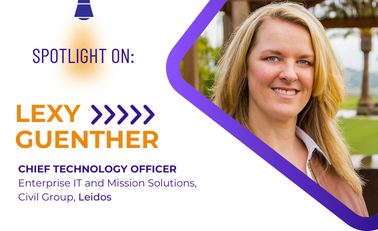
I got into Cyber … through leveraging my non-cyber skill sets. As an engineer with nearly 10 years of experience, I had spent most of my career working in IT and a great deal of those years generating new work through proposal writing, management, and transition. I was well known for tailoring proposals to fit a variety of customers and IT areas. I knew I wanted to move into cyber, so I positioned myself in a start-up cyber team as its proposal manager. From there, I grew my technical cyber expertise and working with the execution and pre-sales teams for cyber operations for Fortune 500 companies around the world.
The mindset that set me up for success was… to “take the undesirable assignment” – one of my peers would tell her mentor/protégé teams this concept and I wholeheartedly agree. Looking back, I lived out this concept to grow and stretch myself through a variety of different projects which would pay dividends months, sometimes years, later. By being willing to volunteer for assignments with vague guidelines, few requirements, or short-term gigs, I was introduced to classified specialty projects, global teams, ITIL and engineering best practices, and cyber security. Get comfortable being uncomfortable in your career path, that is where growth happens.
I would tell my younger self … to not compare your background with others. I was highly sensitive that I often wasn’t the deepest subject matter expert in the room on a given technology or engineering discipline. I got my master’s in systems Engineering and realized it’s because my true passion is in putting together all the complex parts into a single cohesive system-of-systems. I am a few-inches-deep across a mile-wide array of engineering disciplines, from system engineering to software development to engineering management to data center to cyber… and there is great value in that, just as there is value in depth within each of those disciplines.
My recommended read is Good to Great by Jim Collins. It describes the habits and features that distinguishes Good Leaders, who sustain great results within their corporations while they lead them, from Great Leaders, whose companies sustain those results for years after they have left). I enjoy honing my leadership skills so that my teams and employees can be successful – now and well into the future.